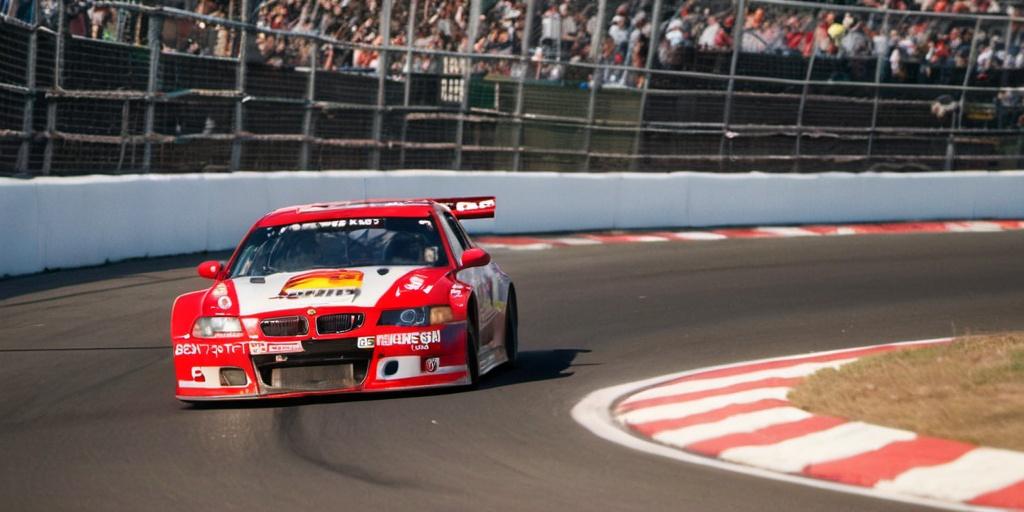In NASCAR, success is measured by a combination of race wins, championships, consistency, and influence. Unlike Formula 1, where total wins are often dominated by machinery advantage, NASCAR’s structure—long seasons, frequent rule changes, and tighter performance parity—makes long-term success harder to sustain. The most successful driver in NASCAR history is usually determined by statistical metrics, especially Cup Series wins and championship totals.
Richard Petty – The Standard Setter
Richard Petty holds the record for most NASCAR Cup Series wins with 200 victories between 1958 and 1992. Known as “The King,” Petty was a dominant force in the 1960s and 1970s, winning seven Cup Series championships, a record he shares with Dale Earnhardt and Jimmie Johnson.
Petty’s win record is unlikely to be broken due to changes in NASCAR’s structure—modern schedules include fewer races per season, and current competition levels are tighter. He won the Daytona 500 seven times, another record, and drove for Petty Enterprises, his family-run team that helped define NASCAR’s early commercial expansion.
His impact extended beyond the track. Petty was instrumental in building NASCAR’s brand and remains a visible figure in the sport’s culture. Statistically, by win count and consistency across decades, Richard Petty is the most successful driver in NASCAR history.
Dale Earnhardt – The Intimidator
Dale Earnhardt won 76 Cup Series races and seven championships, tying Petty’s title record. He was known for his aggressive driving style and strong performances on superspeedways. Earnhardt’s nickname, “The Intimidator,” reflected his competitive approach and psychological advantage over rivals.
He earned his titles between 1980 and 1994 and remained competitive until his death in 2001 at the Daytona 500. His passing triggered widespread safety changes in NASCAR, including mandatory use of head and neck restraints and improvements to car and wall design.
Earnhardt drove for Richard Childress Racing and helped turn the No. 3 car into one of the sport’s most iconic identifiers. While his win total doesn’t match Petty’s, his impact, popularity, and title count place him at the top tier of NASCAR’s most successful drivers.
Jimmie Johnson – Modern Era Dominance
Jimmie Johnson won 83 Cup Series races and matched Petty and Earnhardt with seven championships, all between 2006 and 2016. He is the only driver to win five consecutive championships, an unprecedented feat in the modern era of NASCAR, which includes playoff systems and more parity across teams.
Driving the No. 48 Chevrolet for Hendrick Motorsports, Johnson thrived under the Chase and Playoff formats. His team, led by crew chief Chad Knaus, became known for strategic consistency and performance during high-pressure scenarios.
Johnson retired from full-time NASCAR competition in 2020 but left a record of sustained dominance during one of the sport’s most competitive periods. His era included battles with drivers like Jeff Gordon, Tony Stewart, and Kyle Busch.
Jeff Gordon – The Bridge Between Eras
Jeff Gordon won 93 Cup Series races, placing him third on the all-time wins list behind Petty and David Pearson. Gordon won four championships and was a central figure in NASCAR’s national expansion during the 1990s and 2000s.
He modernized the driver image—more polished, media-friendly, and marketable—and helped NASCAR gain traction in new markets and television demographics. Gordon drove the No. 24 for Hendrick Motorsports, often seen as a rival to Earnhardt’s blue-collar image. Their occasional on-track battles became fan focal points.
While he never won a championship under the playoff format, Gordon remained competitive across multiple rulesets and remains one of the most influential drivers in NASCAR history.
David Pearson – The Quiet Statistic
David Pearson recorded 105 Cup Series wins, second only to Richard Petty, despite running significantly fewer races. He won three championships and was known for his calculated driving and strong qualifying performance—he holds a high career pole-to-win conversion rate.
Pearson often raced part-time schedules and prioritized select events, making his win percentage among the highest in NASCAR history. His career was defined by on-track battles with Petty, especially during the 1970s. Their rivalry is still regarded as one of NASCAR’s most balanced.
Because he didn’t chase every championship and limited his racing calendar, Pearson is sometimes left out of “most successful” conversations. But statistically, he ranks ahead of more decorated champions in terms of wins per start.
Other Notables
- Tony Stewart: 49 wins and three championships. Known for versatility—successful in IndyCar and dirt racing as well.
- Kyle Busch: Over 60 wins in the Cup Series and more than 200 across all three national series. Still active and adding to his record.
- Cale Yarborough: 83 wins and three consecutive championships (1976–78), a rare achievement.
- Bobby Allison: 84 wins, often debated due to NASCAR record-keeping discrepancies, with one championship.
- Denny Hamlin: No championships but over 50 Cup wins and multiple Daytona 500 victories, placing him among the top modern drivers.
Comparing Eras
Comparing drivers across NASCAR’s different eras is complicated. Petty raced when seasons had over 60 races, and mechanical failures were common. Johnson and Gordon drove in a playoff era with tighter points races. Earnhardt’s success came during a transitional period from regional sport to national product.
Race counts, equipment, field depth, and rules all varied. The introduction of restrictor plates, stage racing, and the modern Next Gen car reshaped what success looks like. Still, win totals and championships remain the clearest indicators.
Statistical vs. Cultural Impact
Some drivers are considered more “successful” culturally than statistically. Earnhardt is a primary example—his legend extends beyond raw numbers. Others, like Pearson or Kyle Busch, are statistically stronger but draw less public attention.
In NASCAR, legacy is shaped as much by personality, rivalries, and fan loyalty as by race results. While Formula 1 often separates success into technical and driver categories, NASCAR presents a more intertwined picture.
Summary
Richard Petty remains the most successful NASCAR driver by wins, with 200 career Cup Series victories and seven championships. Dale Earnhardt and Jimmie Johnson match him in titles, but fall short in overall wins. David Pearson is the closest by win total, while Jeff Gordon modernized the sport and racked up 93 wins.
No driver fully dominates every metric. But across all categories—wins, championships, cultural impact—Petty continues to be the benchmark, even in a sport that has evolved significantly since his prime.
In NASCAR, success is earned across thousands of laps, on dozens of tracks, with variables changing every weekend. And while the format differs from Formula 1, the question of “who is the greatest” remains just as loaded—and just as difficult to settle.


